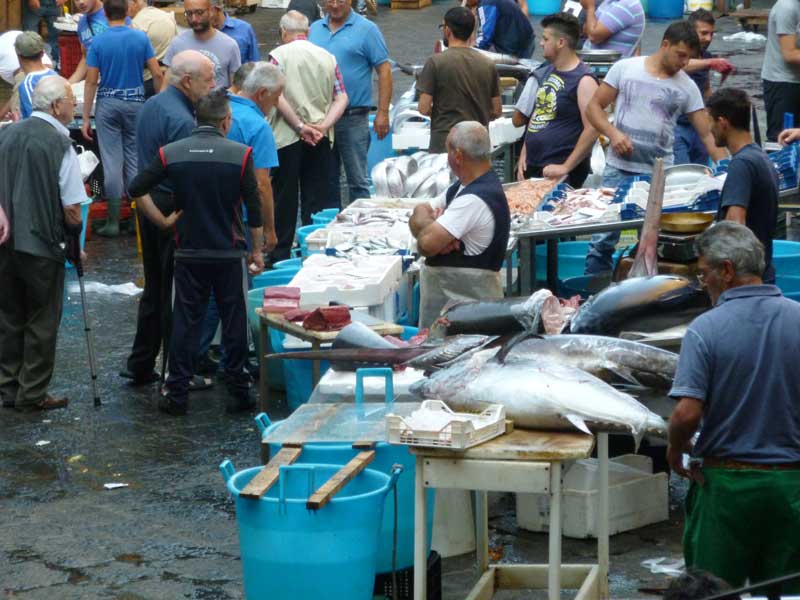Italian is a beautiful language to speak and listen to; musical, fluid and emotionally-expressive. In Italy, words are not merely tools to convey basic messages, but sophisticated descriptions of emotional states. Everywhere you go in Italy you’ll hear Italians talking, arguing, complaining, chattering; a vehicle of communication that is strikingly different to the more minimal style of speech in the Anglo-Saxon world. English-speakers are sometimes considered cold or withdrawn by Italians, simply because they say less.
Although every region has its own dialect with unique words and grammatical usages, the ability to speak ‘good’ standard Italian is regarded throughout Italy as an important mark of education. Italians are very sensitive to how their language is used and it’s generally regarded more appropriate to keep dialect and strong regional accents for private use than for public communication. When speaking to a foreigner, native Italian speakers will usually do their best to ‘standardise’ their speech.
There is also a second Italian language,a helpful lingua franca where dialects might impede understanding, and that’s the language of gesture. There are lots of online videos giving demonstrations of these hand gestures which make entertaining as well as informative viewing.
Why learn the language?
Even if you’re only in Italy on a brief holiday, it’s worth spending a little time learning basic communication. Outside the major tourist sights, spoken English is not particularly widespread. Without at least a few phrases you may encounter problems buying train tickets, or finding the right bus stop. And you may also find important notices written only in Italian – for example: museum opening times, details of a transport strike.
A second major reason for learning some Italian is, of course, politeness. It’s disappointing how many tourists (and British and Americans are sadly big culprits) don’t even make the effort to learn to say ‘thank you’ in Italian. No-one expects a foreign tourist to speak fluent Italian, and most Italians will oblige you with sign language or whatever English they know. But it is simple good manners to be able to say ‘Excuse me’, ‘please’, ‘thank you’ and ‘Do you speak English?’ in the tongue of the country in which you are a guest. And it will do wonders for your relationships with Italians, who will wholeheartedly appreciate any effort made with their language.
Italian for beginners
1. Learn the simple pronunciation rules. Then you can say (and read) the name of your destination, read phrases from a guidebook and you’ll be instantly less helpless.
2. Take a phrasebook or a dictionary with you as you explore, or find a helpful language app. This will make it much quicker and easier if you find yourself in a non-English speaking environment, and need to ask for information.
3. Learn basic phrases and important words by heart: ‘thank you’, ‘where is the bathroom?’ etc.
Buongiorno – Good day
Buonasera – Good evening/afternoon – it is customary to use one of these greetings when entering small shops
Arrivederci – Goodbye
Per favore – Please
Grazie – Thank you
Scusi – Excuse me
Parla inglese? – Do you speak English?
Non parlo italiano – I don’t speak Italian
Dov’è il bagno? – Where’s the bathroom?
Speak Italian
Especially as an independent traveller, you will really benefit from speaking some Italian. From our experience, we can promise you that you will feel safer and more assured, discover useful and interesting facts, cope with unexpected situations, and meet with much greater friendliness if you speak a little Italian. Making new friends and understanding what is going on around you will vastly enhance your enjoyment of Italy. If you have the time, I’d recommend taking an Italian course. Being able to understand what’s going on around you, and being able to communicate with Italians, will make your holiday a totally different and more valuable experience. If you can’t go to classes near your home or you prefer to study at home, there are plenty of online resources these days. Years ago I found the BBC’s Italianissimo book-and-CD courses a very good beginning (see links on the right). Even if you just take a couple of lessons or study a couple of chapters, you will find you’ve advanced considerably in terms of useful phrases and general understanding.
Finally, if you are serious about wanting to learn Italian, why not consider a language course in Italy? Language schools throughout the country teach Italian as a foreign language, and a fortnight in Italy learning Italian makes an interesting, educational holiday.
